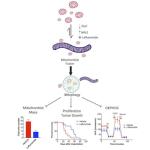For various reasons, this week’s What I Am Reading includes three articles that I mentioned when I started this column, three years ago. It is not that I ran out of material, I just ran out of bandwidth being off the grid.
mitochondria
“Mitochondria seem to be central to the very existence of a stress response, serving both as mediators of it and targets for the damage it can do.
Inside of our body cells are tiny little organs ("organelles") called mitochondria that serve as miniature power plants. They provide the energy necessary for metabolism to occur and our bodies to function.
Views toward suicide have changed in recent decades. Once largely perceived as a selfish act and a "permanent solution to a temporary problem," society has become more compassionate toward those who suffer in silence.
Mitochondrial disease is essentially a disease that impacts how our bodies produce energy.






